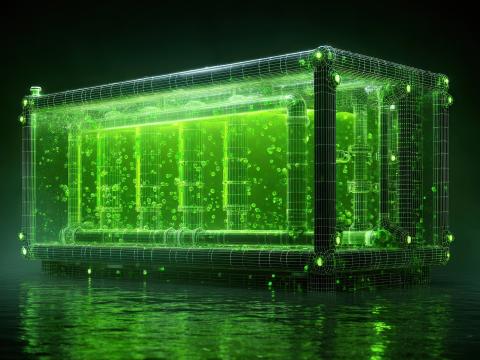On Point: Q&A With Brig. Gen. Kevin Nally, USMC (Ret.)
What are your top projects?
IPv6 [Internet Protocol Version 6] is one. Office of Management and Budget puts it out as a mandate.
The challenge is nobody gives me money to do it.
I set up a Foresight and Innovation Division and a lab that mirrors our classified network. We can run IPv6, for example, through our lab to see where we are and what we need to do. We’re overcoming our own obstacles to keep pushing forward.
And we’re aggressively working zero trust. We’re further than any other component within Homeland Security. We’re using Microsoft Azure 365 products and really have no challenges with it. It’s just a matter of working through all the nuggets to keep pressing forward.
Based on the January 6 incident, we’re still working through text issues, trying to support the operators—like agents and uniformed division officers—being able to send pictures and attachments for investigative and protection, operational issues. Right now, we’re limited to SMS [Short Message Service], which doesn’t meet our operational needs.
We have the United Nations General Assembly, which starts in September in New York. That’s one of our national special security events. Following that, we have APEC [Asia Pacific Economic Cooperation] in San Francisco. I’ll deploy about 80 people in New York and then about 80 people to San Francisco.
Are you preparing for next year’s elections?
Oh, yeah. It’s going to be a big year, depending on how many individuals run for office and how many get security.
The Republican and Democratic National Conventions are national special security events. We deploy IT and cyber specialists to establish supporting communications and networks. We also coordinate with local, state and federal law enforcement to provide a multiagency communications center and other support to those events.
When a national special security event happens, Secret Service is in charge of security, and literally 22-plus law enforcement agencies fall under Secret Service leadership, so Coast Guard, DoD, FBI, ATF, DEA, FAA. It’s a huge undertaking, but our mission can’t fail.
What are some other priorities?
One is always leadership and people. If you take care of your people, they’ll take care of you and get the mission done.
I’m highly concerned with the workforce in terms of recruiting and retention. I don’t have a retention issue, but recruiting is still a challenge. We’re competing with the commercial sector, and the people we hire must have a TS/SCI and pass a polygraph.
How many openings do you have?
Forty-eight. I don’t know how many are right here in D.C., but that’s horrible.
I’ll tell you what’s working. Since COVID, I’ve authorized people to work remotely from a Secret Service field office. The agents have access to IT/cyber professionals who can help them without having to ask me to send somebody down.
That’s one of the first questions people ask when we’re interviewing: “Can I work remotely?”
What technologies will affect the Secret Service?
Artificial intelligence (AI) and quantum computing.
From my perspective, AI is good and bad. I don’t know what to trust, and when you include the 5G networks into that, it’s challenging from a cybersecurity perspective in operating and defending networks.
It’s the same philosophy I had when I was CIO of the Marine Corps. With cloud computing I was like, “Okay, wait, let’s all slow down. I don’t know the security implications of it. Let’s take our time and see how it evolves.”
Is quantum more a benefit or a threat?
Well, everything’s a threat. But it’ll help to include it with AI in terms of investigations to defend our financial infrastructure, to help other countries with their financial infrastructure, especially with cryptocurrency.
Another thing we’re working on that quantum and AI are going to help with is school violence, trying to get ahead of who potentially may be violent. I don’t have the exact stats, but the number of mass shootings that Secret Service has prevented is phenomenal.





Comments